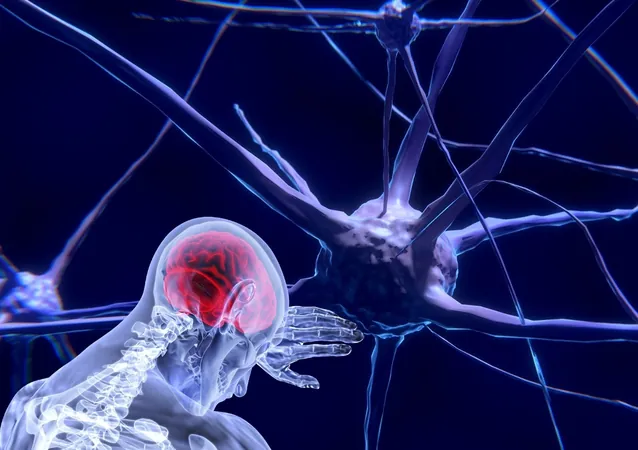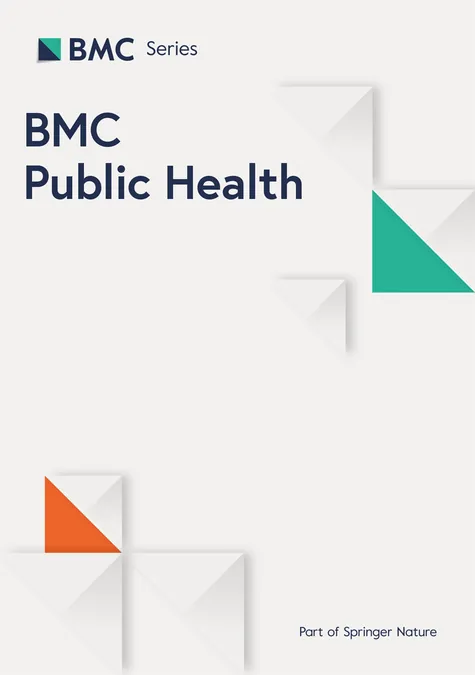
Breakthrough Study Reveals AI Outperforms Human Experts in Predicting Neuroscience Research Outcomes!
2024-11-27
Author: Jacob
AI Surpasses Human Experts in Neuroscience Predictions
Recent groundbreaking research from University College London (UCL) reveals that large language models (LLMs), a sophisticated form of artificial intelligence, can predict the outcomes of proposed neuroscience studies with remarkable precision – even surpassing human experts. This promising capability was detailed in a paper published in the prestigious journal *Nature Human Behaviour*.
The study showcases how LLMs, which leverage extensive datasets of scientific literature, can decipher intricate patterns and trends within the research domain. This ability positions them as invaluable assets in accelerating research processes, potentially transforming how scientific inquiries are approached.
According to Dr. Ken Luo, the study's lead author from UCL Psychology & Language Sciences, "While generative AI tools like ChatGPT have predominantly been acknowledged for their prowess in answering questions, our research pushes the frontier further. We assessed whether these models could synthesize existing knowledge to make future predictions."
The Role of AI in Scientific Research
Traditional scientific research often heavily depends on trial and error, consuming significant time and resources. Regrettably, even the most adept scientists may miss critical insights. This research aims to determine if LLMs can detect patterns throughout vast scientific texts and accurately anticipate experimental outcomes.
The researchers devised a novel tool called BrainBench, meant to evaluate the predictive capacities of various LLMs. BrainBench features pairs of neuroscience study abstracts; one is a genuine abstract that outlines the research background, methodology, and actual findings, while the other presents the same background and methods but offers a plausible yet incorrect conclusion, modified by experts.
Study Findings
The research team compared the accuracy of 15 different LLMs against 171 handpicked human neuroscience experts who had undergone rigorous validation. The compelling results revealed that the AI models consistently outperformed the human participants, achieving an average accuracy rate of 81% compared to 63% for the experts. Even when only the most specialized neuroscientists were evaluated, their accuracy only reached 66%.
Intriguingly, the findings suggested that the more confident the LLMs were in their predictions, the more likely they were to be correct. This insight opens the door to exciting possibilities for collaboration between human experts and calibrated AI tools, marking a potential evolution in research methodologies.
BrainGPT: A Specialized AI Model
Taking this a step further, researchers trained an existing open-source LLM on neuroscience literature, creating a specialized model named BrainGPT. This advanced AI achieved an impressive 86% accuracy in predicting study outcomes, outperforming the general Mistral model that came in at 83%.
Future Implications
Professor Bradley Love, the senior author of the study, remarked, "Given our findings, it's likely that scientists will soon leverage AI tools to design highly effective experiments tailored to their research questions. Although our study primarily focused on neuroscience, our methods could be universally applied across various scientific disciplines."
Dr. Luo also expressed aspirations for future developments: "We are in the process of creating AI solutions that aid researchers in experiment design. Imagine a scenario where scientists input their proposed methods and expected results, with AI providing predictive insights to guide their decision-making process. This could significantly enhance the pace and efficiency of scientific exploration."
Collaborative Effort in Research
The innovative study involved an extensive international collaboration, with contributions from institutions such as the University of Cambridge, University of Oxford, the Max Planck Institute for Neurobiology of Behavior in Germany, and notable universities in Turkey, the US, Switzerland, Russia, Belgium, Denmark, Canada, Spain, and Australia.
Conclusion
As this research highlights, the integration of AI in neuroscience is just the beginning. With continuous advancements, we may soon witness a revolution in scientific research methodology that enhances the quality and speed of discoveries. Are we ready to embrace the AI-driven future of science?









 Brasil (PT)
Brasil (PT)
 Canada (EN)
Canada (EN)
 Chile (ES)
Chile (ES)
 España (ES)
España (ES)
 France (FR)
France (FR)
 Hong Kong (EN)
Hong Kong (EN)
 Italia (IT)
Italia (IT)
 日本 (JA)
日本 (JA)
 Magyarország (HU)
Magyarország (HU)
 Norge (NO)
Norge (NO)
 Polska (PL)
Polska (PL)
 Schweiz (DE)
Schweiz (DE)
 Singapore (EN)
Singapore (EN)
 Sverige (SV)
Sverige (SV)
 Suomi (FI)
Suomi (FI)
 Türkiye (TR)
Türkiye (TR)